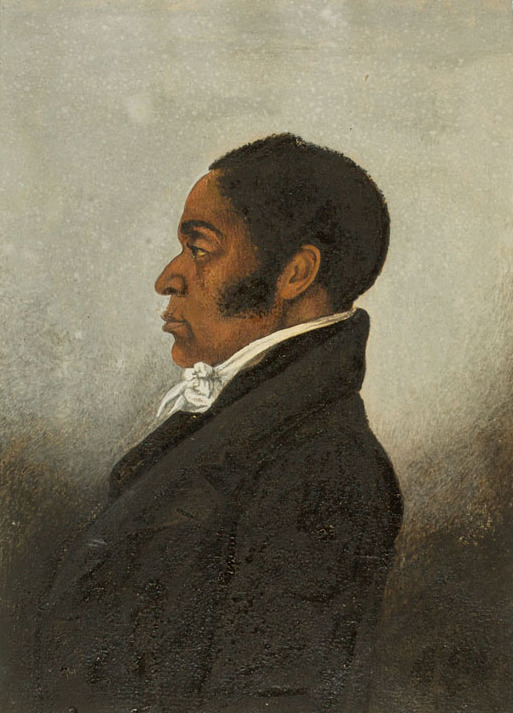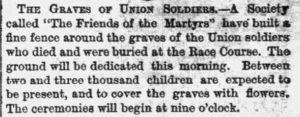Once upon a time in Black Entrepreneur History lived an African American man named James Forten who became one of the wealthiest businessmen in all of Philadelphia, Pennsylvania through his sail-making business and invention.
James Forten was born in Philadephia, Pennsylvania on September 2, 1766 to a family of free Black Americans. His father, Thomas Forten was a sailmaker who was formerly enslaved, having gained his own freedom first before purchasing the freedom for his wife Sarah, James’ mother.
It was from his father that James was familiar with the career of sailmaking before his father passed away in 1775 on the shipyard when James was only seven years of age. This was when he had to step up as a little boy to help the household – his sister and mother – to earn money. He never had the drive to continue schooling, which was run by a Quaker abolitionist named Anthony Benezet, because in order to live, he had to work, therefore, he stopped going to school before he reached ten years of age. This path in life would not measure his success, but prove it.
There were no schools to teach black children during this time period, so Anthony Benezet being an abolitionist formed the USA's first abolitionist society and raised money among the Quakers in order to form a school for Black children.
After dropping out of school, he took odd jobs such as a chimney sweep and even working in a store. By the age of 14 in 1781, his mother gave him permission to to sign onto the Royal Louis privateer as a powder boy. He would be paid $4 a month ($121 a month in today’s year of 2022). There were many Black men (in the thousands) in the Revolutionary Navy along with James Forten, however, something terrible occurred.
James and thousands of others were captured in the Revolutionary War by the British. Most of them were sold off, enslaved to the West Indies, but not James Forten. He wasn’t sold off because he had made friends with the captain’s son, so they transferred him as a prisoner of war to the prison. This transfer to the prison instead of slavery meant that one day he would potentially be free.
Side note: Many people believe that it was "one boat stop" to different places in the Americas during the Transatlantic Slave Trade. This isn't so. There were multiple stops, even from the USA to the West Indies. Therefore, one could have been captured during war and sold off to the West Indies into slavery, never to be seen again in the USA and vice versa. This is why there is a literal kin connection between Black people in the West Indies and the USA. Cousins.
In 1786, James Forten was released. Upon returning home to Philadelphia, he started work on a merchant ship and headed off to England where he worked on a shipyard in London before returning to his home in the USA in 1790 to apprentice in the sail loft where his father used to work. Forten’s work was so good that he was promoted to the position of foreman after only two years working.
Not only that, James Forten made the work there much less stressful by inventing a tool that would maneuver the sails that were large in size. After his invention, he had his sights on ownership.
In 1798, he gained venture capital from a man named Thomas Willing in order to purchase the entire sail loft from the retiring owner. Obtaining the money to purchase the loft wasn’t easy because banks nor businesses would never loan money to Black people because they considered them lesser. It was a good thing that he’d known the man name Thomas Willing most of his life, so Willing made a deal with him. In exchange for loaning Forten the money to buy the sail loft business, Forten would install his new invention for all Willing’s ships. The deal was made.
James Forten Becomes the Wealthiest Businessman in Philadelphia, Pennsylvania
James Forten had officially become an entrepreneur, purchasing the sail loft where both he and his father worked. His invention and his knack for business made him not only the wealthiest man, Black or White, in Philadelphia, but he also hired an integrated staff.
He’d become so wealthy that he not only purchased his own three story home to live in with his wife and family on Lombard Street, but he also purchased a home for his mother and widowed sister.
James Forten, the Abolitionist & Writer
When James Forten achieved massive success, he never forgot about the Black people who needed his help during these times of slavery. Although he was born free, there were thousands still enslaved, and this was never far from his mind. He was going to help as an abolitionist. As an abolitionist, he would finance antislavery causes, one of which was The Liberator newspaper[1].
James Forten was also a skilled writer, even with his meager education to which he never let hinder him. He wrote A Series of Letters by a Man of Color which was protesting a series of bills put forth by the Pennsylvania legislature against free Black people. Below is his letter:
“Has the God who made the white man and the black left any record declaring us a different species? Are we not sustained by the same power, supported by the same food, hurt by the same wounds, wounded by the same wrongs, pleased with the same delights, and propagated by the same means? And should we not then enjoy the same liberty, and be protected by the same laws?”
Forten was also one of the first to sign the petition against the Fugitive Slave Act of 1973 called the Free Blacks of Philadelphia petition. Where the Fugitive Slave Act allowed for Black people, free or escaped from slavery, to be captured and re-enslaved in the South, it was the Free Blacks of Philadelphia petition that called for the change in the laws and the freedom of the nearly one million Black people still enslaved.
The petition was rejected, but Forten also wrote a detailed letter telling the delegation that Black people were miserable in the state that they are in, revealing that
“a deep gloom now envelops us, but we derive some comfort from the thought that we are not quite destitute of friends, that there is one who will use his endeavors to free the slave from captivity, at least render his state more sufferable, and preserve the free Black in the full enjoyment of his rights.”
“Many of our ancestors were bought here more than 100 years ago; many of our fathers, many of ourselves have fought and bled for the independence of our country. Do not expose us to sale. Let not the spirit of the father behold the son robbed of that liberty which he died to establish, but let the motto of our legislature be, The law knows no distinction.” – [2]
It was with this Forten letter sent as part of the Series of Letters by a Man of Color that a brand new series of laws that white people yearned to have passed against Black people was defeated in the Senate, having been passed by the House. The bill that was defeated was one that would have allowed white people to sell the services of Black people who were convicted, taxing free Black people to support their poor, and requiring Black people to register in any state within 24 hours of their arrival.
Later during a time around 1816, the lawmakers agreed that free Black people were making it hard for them to continue easily with the institution of slavery, so they concocted a plan to offer free Blacks the chance to go back to Africa, Sierra Leon in particular, and other areas. That way, enslaved Black people wouldn’t be inspired to try and become free, as if they needed inspiration.
White men formed a Society and were secretly going to keep the “tame” Black people in America and send the ones that were a threat back to the continent of their forefathers. This would also include being once again ripped from their families, creating the anguish they’d already felt their first time being taken from the continent and while in slavery, basically an endless cycle of being ripped from their families. The United States had already become their home, and colonization of any part of Africa wasn’t going to be because they didn’t want to have to start over again in a land they didn’t know at all or anymore, especially without the choice of taking all of their family with them.
Forten opposed sending Black people away from what was now the only country they knew, their own country. At first, he thought Black people would have been better off back in Africa away from racism, but then he realized that Black people now knew nothing about the continent or countries and would have to suffer again, leaving their relatives again, poor and not even being able to reconnect with African families they no longer knew. Forten fought against the colonization of Black people in various places in Africa, but instead, led the fight for equal rights and freedom for Black people in the country of their birth – America.
Death of James Forten
On February 14, 1842, James Forten passed away at the age of 74, in his bed. He spent the majority of his fortune as the wealthiest person in Philadelphia freeing enslaved Black people (buying their freedom) and supporting any and all charities having to do with the emancipation of Black people. He spent most of his $300000 fortune (over $9 million in today’s year of 2022) making change and fighting for freedom.
Buried at the African Episcopal Church of St. Thomas, his legacy of perseverance and uplifting your fellow brother while fighting for justice will never be forgotten.
Later on in his descendants, there would be another inventor in the family, his grandson William B. Purvis, the inventor of the fountain pen.
Sources:
- Philadelphia Daily News (Philadelphia, Pennsylvania) 14 Feb 2020, Fri Page A26
- Oakland Tribune (Oakland, California) 03 Nov 1968, Sun Page 205
- Photo source: wikipedia (public domain from 1800s)






More Related Stories
James Wormley – Founder of the Most Expensive Hotel in Washington D.C. in 1800s – the Wormley Hotel
William E. Matthews – Wealthy Financial Broker & Civil Rights Leader of 1800s
Charles Porter Grove – Owner of Montana and Illinois Gold Mining Company & Leader of the “Dreamed” Grove City, Montana